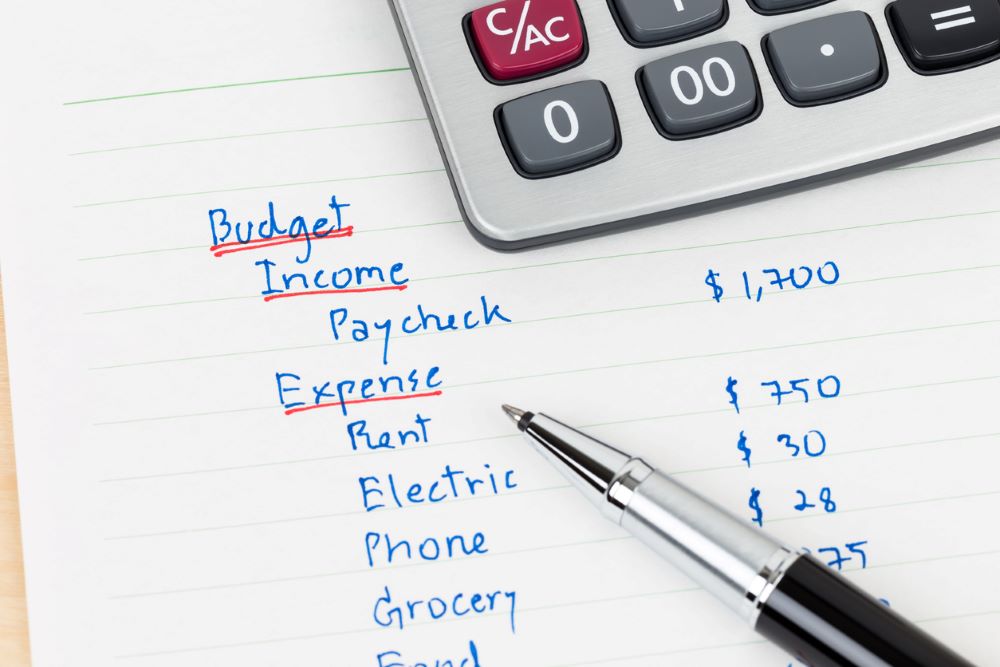The simple act of creating a budget won’t affect your credit score one way or the other. But budgeting can help prepare you to live within your means, pay your bills on time and effectively manage your debts. These benefits can have a direct positive impact on your credit score over time.
How Budgeting Can Positively Impact Your Credit Score
Having a budget allows you to keep track of your cash flow, both incoming and outgoing. Staying organized can help your credit scores as well:
Pay Your Bills on Time.
Payment history is the most important factor when calculating your credit score. Payments that are 30 days past due or more can land on your credit report and drag down your score. Following a budget can help you keep enough cash in your account for your bills and keep track of due dates.
Reduce Your Credit Utilization.
Credit utilization ratio is the amount of available credit you have tied up in debt. If your credit card balances are too high, they can lower your credit score. Maintaining a budget can help you cover your monthly bills, avoid overusing your credit card and pay down your existing balances to reduce your utilization.
Pay Off Debt.
If you have taken on too much debt, it’s difficult to find the money each month to make your payments. Keeping a budget and allocating money toward your debt payments – including paying over the monthly minimum – enables you to reduce your debt faster.
Save More.
Putting a line item on your budget for savings can put you on the path to building a bigger emergency savings fund. Emergency savings are invaluable when you encounter unexpected expenses, from car repairs to medical bills, and eliminate (or reduce) the need to take on debt.
How to Create a Budget to Help Your Credit
Creating a budget doesn’t have to be an overwhelming task. You simply track the money coming in and going out every month. You can use a simple notebook or spreadsheet to start or automate things with a budgeting app like Mint or Good budget.
First, add up your income. Start with predictable income, like your paycheck or Social Security benefits. Then, tally up the irregular income you may receive each month. For example, if you’re a business owner and don’t receive a consistent paycheck, you can average your annual income for twelve months and use that to arrive at your monthly income.
Next, tally up your expenses and break them out into categories. Start with consistent monthly bills, such as your rent, childcare, insurance and debt payments. Then add in your variable expenses like groceries, dining out and family outings.
You may need to review your credit card and bank statements to estimate how much you spend in these areas. Finally, include due dates for recurring bills, so you know when you need to pay them each month.
Now you can compare your income to your expenses and see how much money you have left over each month. Or, if you’re spending more than you’re bringing in. Because your expenses are broken out line by line, you can identify areas where you may need to reduce spending or look for areas where you can allocate more cash.
Remember, your budget won’t stay the same forever, and it’s a good idea to revisit it regularly. You may want to use it as a monthly bill payment or autopay tools to track what bills are due and when. And you may want to adjust it if there’s a change in your finances, such as if you experience a change in income or pay off a loan for good.
As priorities change, you can reallocate your income toward the financial goals you want to work toward.
Ways to Achieve Good Credit
Your budget isn’t the only thing that affects your credit score. Paying your bills on time, maintaining low credit card balances, and avoiding negative items like bankruptcy can go a long way in achieving a good credit score.
But you also need to ensure you’re taking steps to protect your credit and personal information. Consider signing up for a credit monitoring plan to stay on top of the information in your credit report. It can help you ensure it’s fair and accurate. You also can react quickly to possible signs of fraud.











